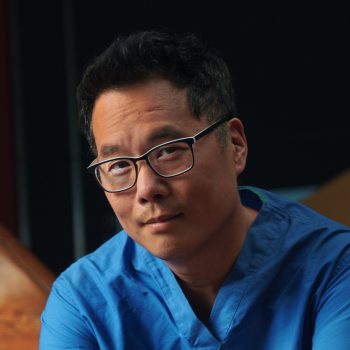By Larry Chu, MD
Dr. Joyce Sackey has dedicated her career to championing diversity, equity and inclusion in academic medicine. As the first Chief Equity Diversity and Inclusion Officer at Stanford Medicine, she is reshaping the landscape of healthcare.
In this interview on the Represented podcast, Dr. Sackey discusses her passion for health equity, her role coordinating diversity initiatives at Stanford Medicine, and her advocacy for proven best practices in healthcare. She offers wisdom on finding mentors, integrating personal and professional life, and achieving a sense of belonging for underrepresented groups in medicine.
Born in Ghana, Dr. Sackey moved to the U.S. for college at Dartmouth and stayed for medical school. She completed her residency at Beth Israel Deaconess Medical Center in Boston, where she served for 20 years as a primary care physician, educator and advisor to residents and medical students.
Dr. Sackey then transitioned to academic leadership roles at Harvard Medical School and Tufts University School of Medicine, serving as Dean for Multicultural Affairs and Global Health, among other positions. This diverse experience equipped her well for leading diversity efforts at Stanford.
Throughout her career, Dr. Sackey has exemplified how to integrate personal and professional growth, even during medical training. She offers advice to make time for family while pursuing a meaningful career in medicine:
“Just like how you schedule time on your calendar to teach, and see patients. You need to also make sure that you’re thinking about personal time for your family. Because if you don’t schedule it somebody else is going to fill that time for you.”

Dr. Sackey also emphasizes the importance of having multiple mentors to provide guidance as your interests evolve:
“Our careers are quite complex,” Sackey noted. “I began in the clinician educator space, then made a foray into global health.” Recalling what she found necessary to successfully navigate that complex terrain, she told us, “I knew I needed what I now call a personal board of directors – having multiple mentors who can speak to the different aspects of your life.”
For underrepresented students and faculty struggling with feelings of not belonging, she offers reassurance:
“I do what I call appreciative inquiry…I ask them, you know, what are you most proud of so far? You’re a first year medical student. What have you been able to do that you’re proud of? And just remind them that they are hitting these milestones and that is enough. It’s enough for them to feel like they belong.”
Dr. Sackey’s wisdom and leadership are paving the way for a more diverse, equitable and inclusive future in medicine. Her advocacy for health equity and proven best practices will continue to inspire positive change.

Larry Chu is a Professor of Anesthesiology, Perioperative and Pain Medicine at the Stanford University School of Medicine and Director of the Stanford Anesthesia Informatics and Media (AIM) Lab.




